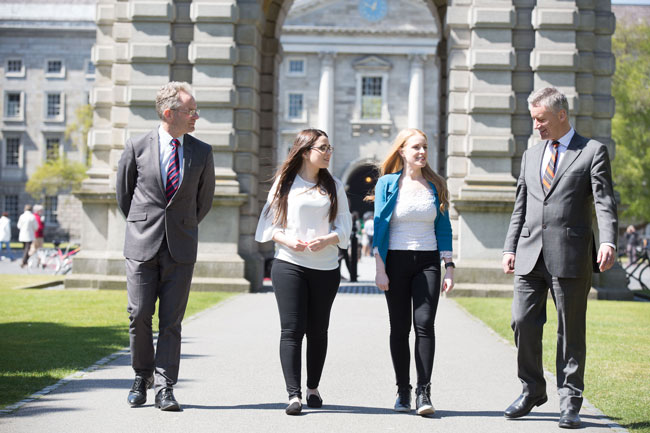Following on from Trinity’s acceptance as a member of one of the world’s most prestigious research groups, three Trinity postdoctoral students have been given the opportunity to attend the League of European Research Universities’ (LERU) doctoral summer school.
LERU’s summer school, which will be held in the University of Zurich this year, hopes to give successful doctoral candidates professional and personal opportunities, outside of what they would already gain from the course of study.
In a press statement, Trinity’s Dean of Graduate Studies, Prof Neville Cox, spoke about how competitive the process of selection was “both internally and within LERU”. The three students selected to represent Trinity are Shauna Quinn, Rebecca Amet and Camila Perera, and they will work with students from across the other LERU universities at the school. They will be studying the topic of citizen science, which will centre around science and public participation in the digital age.
“It is a cause of celebration that three hugely talented students from Trinity will be part of it”, added Cox. “I have no doubt that our three attendees at the school will contribute significantly to what will be a phenomenal learning experience.”
Trinity was named the 23rd, and only Irish, member of LERU in November 2016, a group which has a strong influence on EU research policy. Speaking at the announcement event in November, Provost Patrick Prendergast said that he was “thrilled” Trinity was now “at this top table of European Research Universities” and that the acceptance proves “the excellence of our research”.
“Of the 4,000 universities in Europe, Trinity is now one of only 23 universities at Europe’s top table”, he concluded.
The league was founded in 2002 with institutions only able to join by invitation. LERU’s membership can be no higher than 30 universities. Prospective members must complete a long and difficult application process, and must show that they are leaders in high-quality research output and strength of teaching, as well as being of indisputable high quality and sufficiently influential, to be of use to LERU when it comes to its lobbying activity.
LERU universities have a combined research budget of €5 billion, with €300 million coming from research grants from EU projects. Over 230 Nobel Prize and Field Medal winners have studied in its universities.







